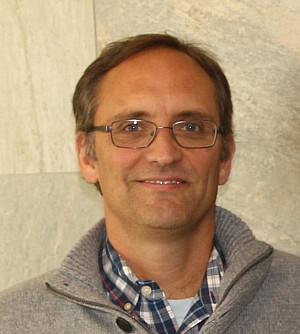Psychology

Joel Bish
Associate Professor of Psychology
My current research interests include the role of executive function and impulse control in typical and atypical development, the effects of concussion on neuro-cognitive function, and facial processing.
Joel P. Bish, Ph.D., is an Associate Professor of Psychology at Ursinus. He received his B.S. in Psychology from York College of Pennsylvania, his M.S. in Experimental Psychology from Towson University in Baltimore, and his Ph.D. in Cognitive Neuroscience from the University of New Mexico in Albuquerque.
From 2003 to 2005, Dr. Bish was an NIH National Research Service Award Fellow at the Children’s Hospital of Philadelphia. In 2005, he joined the faculty of Ursinus College in the Psychology Department and served as the Coordinator for the College’s Neuroscience major from 2005 until July of 2014.
Degrees
- B.S., York College of Pennsylvania
- M.A., Towson University
- Ph.D., University of New Mexico
Teaching
The Brain and Its Mind
Applied Cognitive Neuroscience
Behavioral Neuroscience
Research Methods
Neuroscience Capstone
Research Interests
Dr. Bish has research interests across a number of domains of cognitive neuroscience, including:
- The normal and abnormal neurological development of visuospatial, executive, and numerical processing.
- The relationship between cognitive dysfunction and mild traumatic brain injury (e.g. concussions).
- The neurological underpinnings of aesthetics.
- The use of multiple neuroimaging techniques (MRI, fMRI, ERP, MEG) to examine the structure/function relationships of the human brain.
Recent Work
Faculty mentor for the following student research projects:
- EEG and Subjective Correlates of Strobically-Induced Visual Hallucinations.
- Visual Processing in Individuals with Differential Autistic Qualities.
- Using Spectral Analysis and Event-Related Potentials to Identify Cognitive Deficits within Concussed Student Athletes.
- Effects of False Beliefs on Personality Change.
- Neurocorrelates of Symptomology of ADHD and OCD.